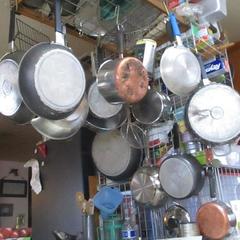-
Welcome to the eG Forums, a service of the eGullet Society for Culinary Arts & Letters. The Society is a 501(c)3 not-for-profit organization dedicated to the advancement of the culinary arts. These advertising-free forums are provided free of charge through donations from Society members. Anyone may read the forums, but to post you must create a free account.
Hard-Anodized Stock Pots - How Non-stick Are They?
-
Similar Content
-
- 146 replies
- 28,290 views
-
- 406 replies
- 103,001 views
-
- 114 replies
- 42,710 views
-
- 37 replies
- 18,221 views
-
- 37 replies
- 18,221 views
-
-
Recently Browsing 0 members
- No registered users viewing this page.





Recommended Posts